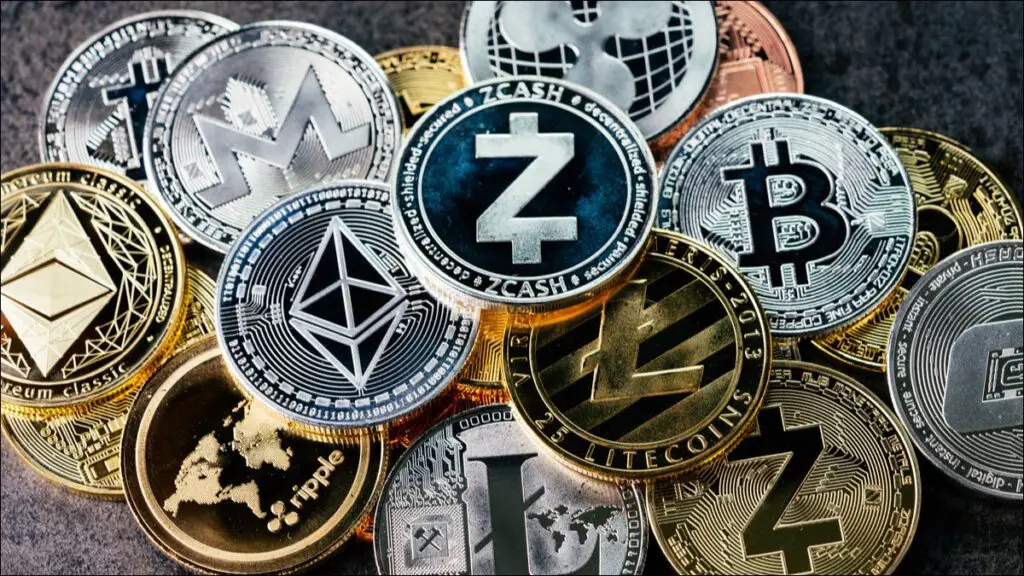Cryptocurrency, as volatile and speculative as it seems, has proven to be a very real investment. However, for a person just transitioning into this niche, there’s a lot of research to do before spending a single cent on any coin because the crypto industry is plagued with scammers. These are the 4 most common crypto scams to avoid when investing.

Table of Contents
4 Crypto Scams to Avoid When Investing
There are a variety of crypto scams to avoid when investing. I’ve detailed four of the most common ones below! Whether you’re looking to invest in the most popular Bitcoin or other altcoin, make sure you read about these before you pull the trigger.
Fake Cryptocurrency Investments
The crypto industry always has a sizable number of newcomers: many people view it as a quick ticket to wealth. But this also opens up many opportunities for scammers to take advantage of naive investors.
It usually begins with unsolicited offers for a fake project that promises to ‘make you rich’. Scammers can set up websites that look legit and professional as well as feed their victims fake reports along the way. When people are told new upgrades have been made and more investors are coming, they tend to be reaffirmed in their investment and put even more in.
In some cases, parts of new investors’ money are given to old investors as rewards, making the whole thing basically a Pyramid scheme. However the process may differ, the end result is always the same: the ‘project developers’ will suddenly disappear with all the investors’ funds.
In addition, big names don’t always equal real opportunities either. Some scammers will create fake websites posing as popular crypto exchanges such as Coinbase or invite you to join their ‘mining operation’ that mines Bitcoin or any other legitimate cryptocurrencies.
Social Media Crypto Investing Scams
Crypto scammers often take full advantage of the power of social media. Not long ago there was a Telegram scam in the r/wallstreetbets subreddit, a community where people discuss stock trading.
All the scammers had to do was promise to trade Binance coins for a brand-new unintroduced token called WSB token. Simple is the method, they managed to walk away with $2 million worth of Binance coins. The scammers wrote “buying limbo now” on Telegram before deleting the whole account.
Twitter is also another gold mine for crypto scammers. People have created fake accounts of famous crypto celebrities such as Elon Musk or Mark Cuban, then posted a comment under a tweet from the real account. These comments often follow the lines of ‘I’m doing a giveaway of abc coin and you just need to send a small gas fee to this address to receive it’. It’s estimated that $2 million have been lost to impostors using Elon Musk’s name.
No social media is really safe from these tricks, even online dating apps have them. The rule of thumbs is: if you have to send somebody money first before receiving whatever they promise, it’s probably a lie.
ICO Scams
An ICO stands for ‘initial coin offering’, which is a well-known method to attract investors to launch a new crypto project, whether it be a currency or a blockchain game. When you buy into the offering, you will receive a certain amount of the new token (that basically represents the stake in the company).
Successful ICOs in the past for Ethereum or NEO proves that they can be extremely profitable for investors. However, many ICOs are plain fraudulent whether it be a fake currency or a spoof of a real currency that is having an ICO.
It’s alarming how easy it is for an average Joe to create a new token with online services readily available. Different from actual shares in a company, a token has no intrinsic value or legal guarantee. The rise of ICO scams became so rampant in 2017 and 2018 that many entities flat-out banned ICO and ICO advertisements, including the People’s Bank of China, Facebook, Twitter, Google…
A few tips for avoiding ICO scams are: see if the project’s whitepaper has clearly defined goals and not just beating around the bushes, try to demand as much transparency between the developers and investors as possible (including finding out the identities of the developers), actually read the terms and conditions of the ICO, and ensure that the ICO funds need multiple keys to be accessed.
Fake Crypto Wallets
No matter what kind of crypto investment you make, you can’t store the coins in a bank. You have to use a crypto wallet, which can be a physical device, a software or service offered by crypto exchanges.
The common concern people have is getting their wallet hacked, but even the wallet itself can be fake. These fake wallets can all be accessed and drained by scammers using a master key. In 2017, the developers of Bitcoin Gold were persuaded to store over $3 million in Bitcoin in mybtgwallet.com. Then, the creators of said wallet easily stole all of the fund.
The lesson learned here is that you should strictly use reputable crypto wallet services with a long-standing track record. Even more careful, store your crypto in a cold wallet not connected to the Internet and only put money into a hot wallet to trade/buy something.
Crypto Scams to Avoid When Investing – Summary
Regardless of
Did you learn something new about crypto scams to avoid when investing? Read more articles like it here and subscribe here to hear about the latest content. Thank you for reading!
Jack Spade is a crypto enthusiast who loves sharing his knowledge with others. Besides, he’s an aspiring novelist and has a Medium (https://jackspade24.medium.com/) account where he posts all kinds of interesting things.
